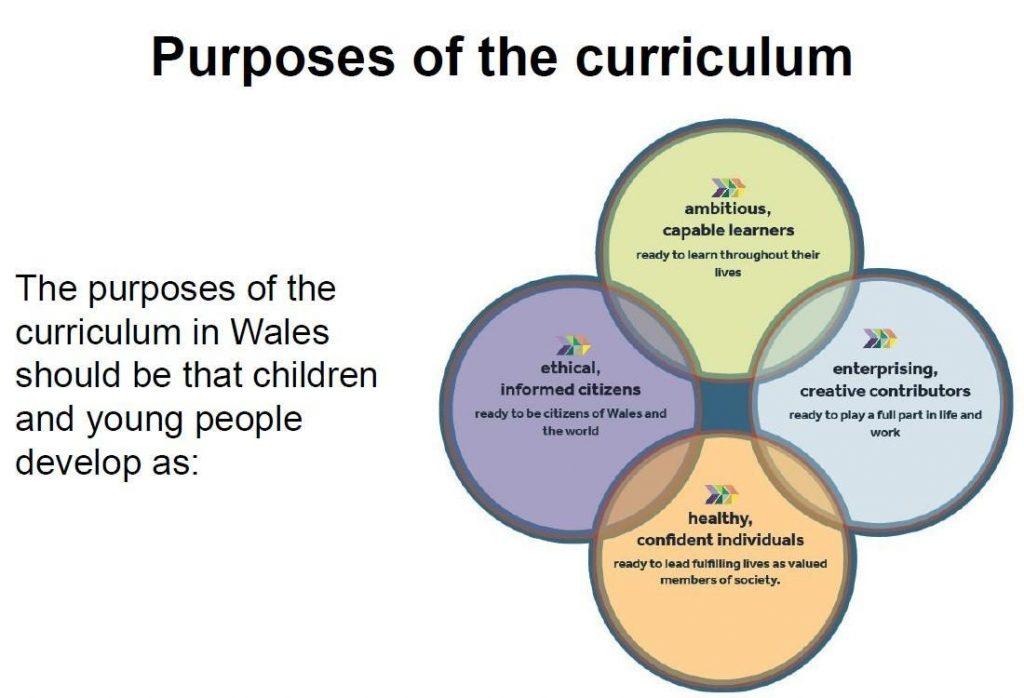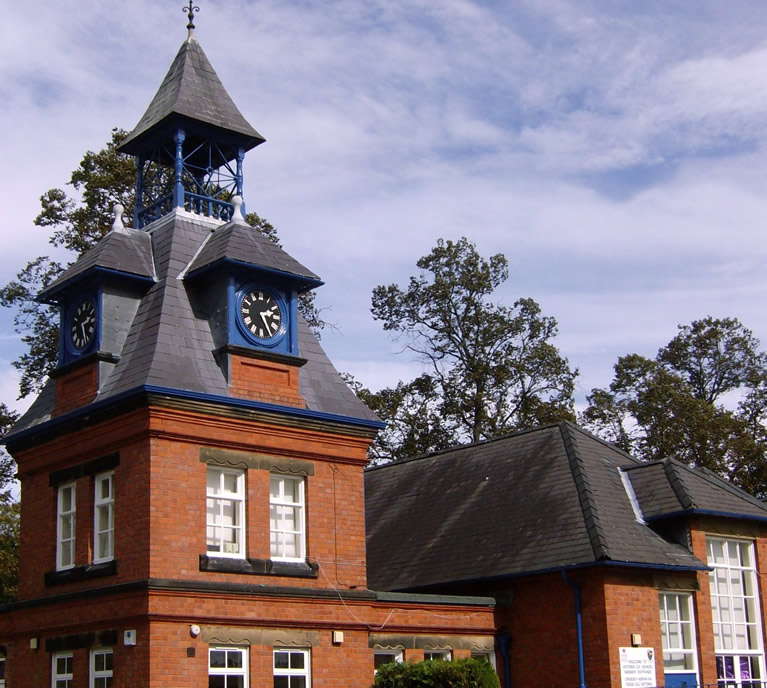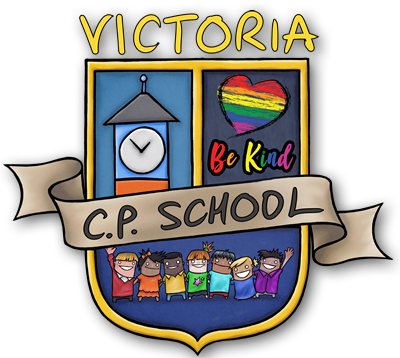
The purposes of the curriculum in Wales should be that children and young people develop as:
- ambitious, capable learners, ready to learn throughout their lives
- enterprising, creative contributors, ready to play a full part in life and work
- ethical, informed citizens of Wales and the world
- healthy, confident individuals, ready to lead fulfilling lives as valued members of society.
All our children and young people will be:
- ambitious, capable learners who:
- set themselves high standards and seek and enjoy challenge
- are building up a body of knowledge and have the skills to connect and apply that knowledge in different contexts
- are questioning and enjoy solving problems
- can communicate effectively in different forms and settings, using both Welsh and English
- can explain the ideas and concepts they are learning about
- can use number effectively in different contexts
- understand how to interpret data and apply mathematical concepts
- use digital technologies creatively to communicate, find and analyse information
- undertake research and evaluate critically what they find
- and are ready to learn throughout their lives
- enterprising, creative contributors who:
- connect and apply their knowledge and skills to create ideas and products
- think creatively to reframe and solve problems
- identify and grasp opportunities
- take measured risks
- lead and play different roles in teams effectively and responsibly
- express ideas and emotions through different media
- give of their energy and skills so that other people will benefit
- and are ready to play a full part in life and work
- ethical, informed citizens who:
- find, evaluate and use evidence in forming views
- engage with contemporary issues based upon their knowledge and values
- understand and exercise their human and democratic responsibilities and rights
- understand and consider the impact of their actions when making choices and acting
- are knowledgeable about their culture, community, society and the world, now and in the past
- respect the needs and rights of others, as a member of a diverse society
- show their commitment to the sustainability of the planet
- and are ready to be citizens of Wales and the world
- healthy, confident individuals who:
- have secure values and are establishing their spiritual and ethical beliefs
- are building their mental and emotional well-being by developing confidence, resilience and empathy
- apply knowledge about the impact of diet and exercise on physical and mental health in their daily lives
- know how to find the information and support to keep safe and well
- take part in physical activity
- take measured decisions about lifestyle and manage risk
- have the confidence to participate in performance
- form positive relationships based upon trust and mutual respect
- face and overcome challenge
- have the skills and knowledge to manage everyday life as independently as they can
- and are ready to lead fulfilling lives as valued members of society.
There are 6 Areas of Learning and Experience (AoLEs):
- Language, Literacy and Communication
- Maths & Numeracy
- Science & Technology
- Expressive Arts
- Humanities
- Health & Wellbeing
There are 5 cross-cutting themes which should allow learners to:
- consider local, national and international contexts
- develop understanding of relationships and sexuality education,
- develop an understanding of human rights education
- appreciate and learn about diversity
- develop an understanding of careers and work-related experiences
There are 4 integral skills:
The four purposes are also underpinned by integral skills which should be developed within a wide range of learning and teaching. At the heart of these skills is the importance of learners recognising, using and creating different types of value. In this context, value means worth and importance in a range of contexts, including financial, cultural, social and learning value.
Creativity and innovation
Learners should be given space to be curious and inquisitive, and to generate many ideas. They should be supported to link and connect disparate experiences, knowledge and skills, and see, explore and justify alternative solutions. They should be able to identify opportunities and communicate their strategies. This should support learners to create different types of value.
Critical thinking and problem-solving
Learners should be supported to ask meaningful questions, and to evaluate information, evidence and situations. They should be able to analyse and justify possible solutions, recognising potential issues and problems. Learners should become objective in their decision-making, identifying and developing arguments. They should be able to propose solutions which generate different types of value.
Personal effectiveness
Learners should develop emotional intelligence and awareness, becoming confident and independent. They should have opportunities to lead debate and discussions, becoming aware of the social, cultural, ethical and legal implications of their arguments. They should be able to evaluate their learning and mistakes, identifying areas for development. They should become responsible and reliable, being able to identify and recognise different types of value and then use that value.
Planning and organising
Where developmentally appropriate, learners should be able to set goals, make decisions and monitor interim results. They should be able to reflect and adapt, as well as manage time, people and resources. They should be able to check for accuracy and be able create different types of value.




